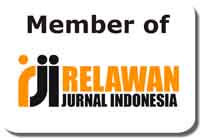Vygotsky’s Legacy on Teaching and Learning Writing as Social Process
Abstract
Keywords
Full Text:
PDFReferences
Clay, M. M., & Cazden, C. B. (1990). A Vygotskian interpretation of Reading Recovery. In L. C. Moll Vygotsky and Education: Instructional Implications and Applications of Sociohistorical Psychology. Cambridge: Cambridge University Press.
Farrell, T. (2004). Reflective Practice in Action: 80 Reflection Breaks for Busy Teachers. California: Corwin Press.
Jay, J. K., & Johnson, K. L. (2002). Capturing complexity: A typology of reflective practice for teacher education. Teaching and Teacher Education, 18, 73-85.
Johnson, K. E. (2009). Second Language Teacher Education: A Sociocultural Perspective. New York: Routledge.
Nurfaidah, S. (2016). EFL pre-service teachers’ reflection: A case study in an Indonesian instructional context. (Unpublished doctoral dissertation), Indonesia University of Education.
Nurfaidah, S. (2018). Three attitudes of a reflective teacher. Research and Innovation in Language Learning, 1(1), 39-48.
Nurfaidah, S., Lengkanawati, N. S., & Sukyadi, D. (2017). Levels of reflection in EFL pre-service teachers’ teaching journal. Indonesian Journal of Applied Linguistics, 7(1), 80-92. doi: 10.17509/ijal.v7i1.6861
Tharp, R., & Gallimore, R. (1988). Rousing Minds to Life: Teaching, Learning, and Schooling in a Social Context. Cambridge: Cambridge University Press.
Tudge, J. (1990). Vygostky, the zone of proximal development, and peer collaboration: Implications for classroom practice. In L. C. Moll Vygotsky and Education: Instructional Implications and Applications of Sociohistorical Psychology. Cambridge: Cambridge University Press.
Vygotsky, L. S. (1978). Mind in society: The development of higher psychological processes. In M. Cole, V. John-Steiner, S. Scribner, & E. Souberman (Eds.). Cambridge, MA: Harvard University Press.
DOI: http://dx.doi.org/10.31332/lkw.v4i2.1038
Copyright (c) 2018 Sitti Nurfaidah

This work is licensed under a Creative Commons Attribution-ShareAlike 4.0 International License.
Langkawi: Journal of The Association for Arabic and English indexed by:



















.png)
.png)

.png)
2.png)








